Sigur Rós at Wembley Arena
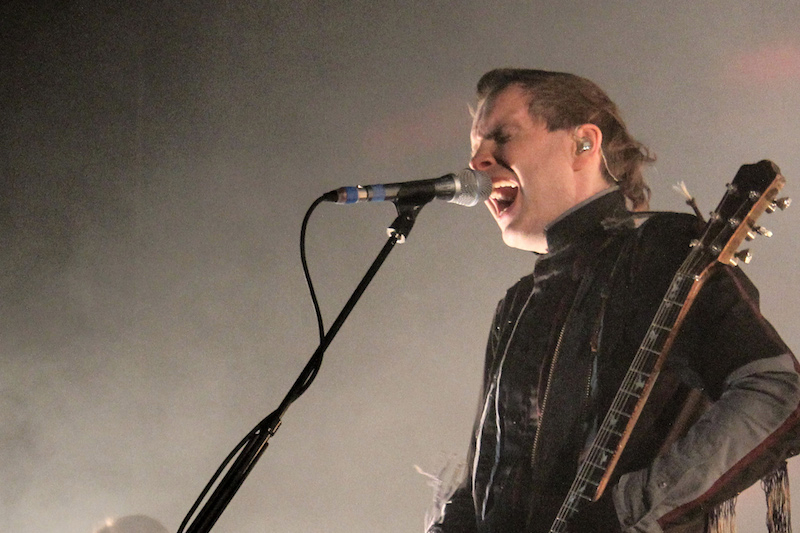
People keep wondering how this band from Iceland, singing partly in Icelandic and partly in a language invented by frontman Jón “Jónsi” Þór Birgisson, managed not only to put together a loyal fanbase worldwide but also play arenas and even break the US top 10 chart with their 2012 release Valtari.
They are now touring to promote their latest effort Kveikur, widely received as one of the group’s most authentic works since their cult record (), playing their biggest UK venue to date.
The stage looks like a giant white cube made of curtains; the setlist begins with Yfirborð – the most dreamlike of the new album – and laser projections over the curtains enchant the audience. That’s the key to their songs: they arouse a fascinating dream-like feeling.
With the white curtains still on, protecting Sigur Rós inside this delicate bubble, the second track Vaka keeps the sense of unreality and magic alive. As the curtains fall, it’s the hard Brennisteinn which hits the crowd, with its heavy guitars and heavy sound.
The band may have lost one of their founding members Kjartan Sveinsson, but the session man who has stepped in seems to be very prepared to fill in for the tours.
An hour down the setlist and it’s time for the group’s big hit Hoppípolla, the song that convinced major label EMI they were ready for a broader audience. The arena is enchanted and the strings of the wonderful Amiina – the ensemble that plays with them on stage to add an orchestra-like instrumental variety – make the rendition incredibly special.
This is followed by two of the most interesting numbers in the new album, Rafstraumur and Kveikur, which create an almost religious vibe in which the audience is incapable of singing along even when they know the words very well.
The downside of playing long, intense tracks is that you end up neglecting some – it would take too much time to play 20 – and some of their albums suffer from this. Only Festival is played from the brilliant Með Suð í Eyrum Við Spilum Endalaust, produced by Flood, with genius creations like Suð í Eyrum, Ára Bátur and Fljótavík remaining unsung.
The sweetness of Jónsi’s voice fully emerges in the encore with Ágætis Byrjun, the opener of their eponymous debut album. “It’s a good song,” he says before strumming an acoustic guitar for the first time in the concert. From the same record is follower Svefn-g-Englar, one of the crowd favourites and also one of the and’s lengthiest compositions (10.04 minutes). This is their sound-defining song, with Jónsi singing directly through the guitar’s pickups during the finale to obtain and deliver that faded echo effect that every fan knows so well from the record.
The set closes with the Sigur Rós’ most transcendental track, Popplagið from () – its gradual escalation of anticipation explodes with an instrumental that gets close to metal, releasing the darker side of the band and touching every single person in the arena. The trademark cello bow with which Jónsi plays the guitar is now worn-out, and a huge takk (thanks) appears on the stage screen as everybody leaves, amazed.
Filippo L’Astorina, the Editor
For further information about Sigur Rós and future events visit here.

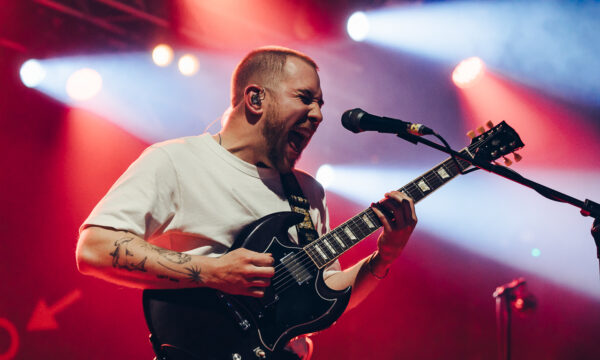
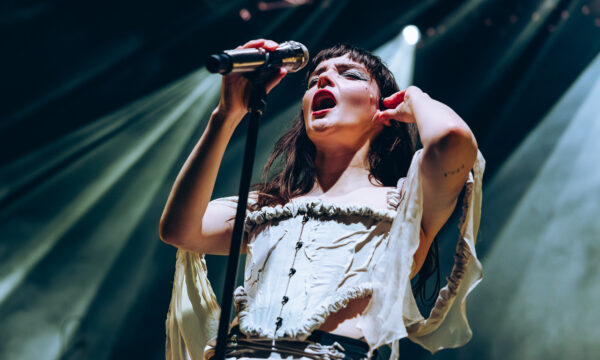
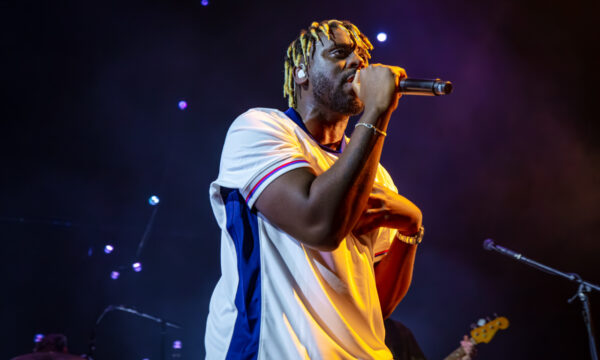
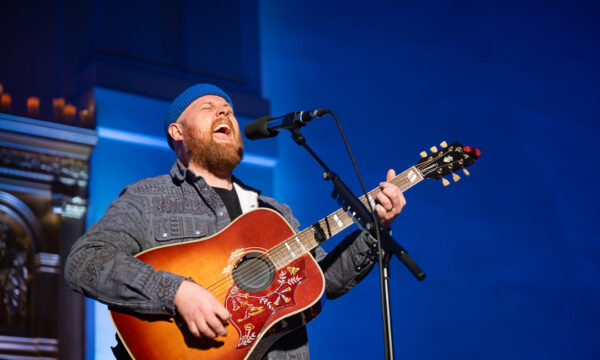
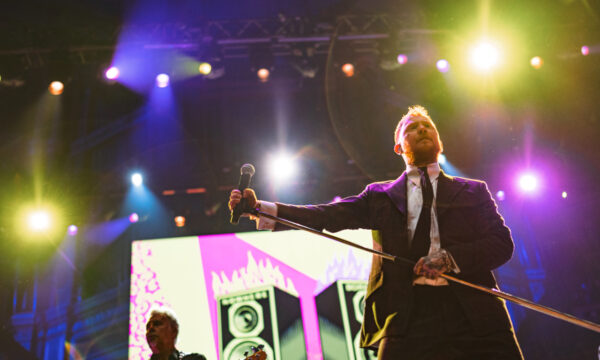
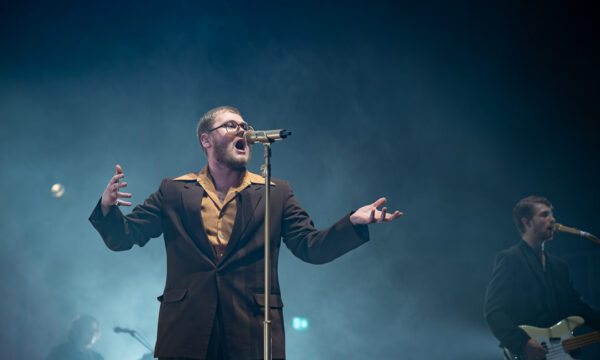
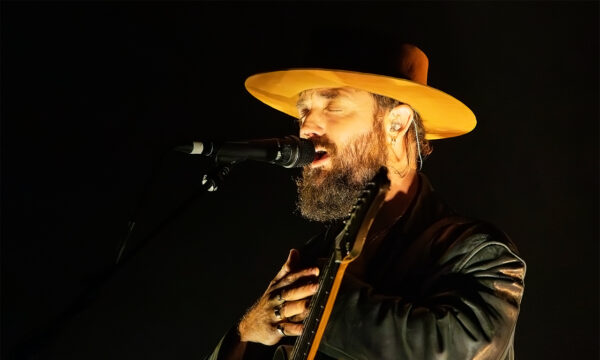
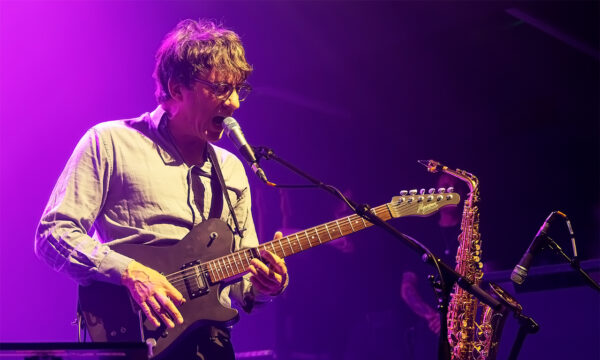
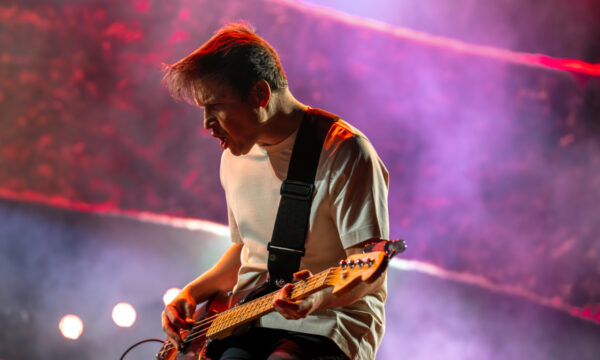









Facebook
Twitter
Instagram
YouTube
RSS